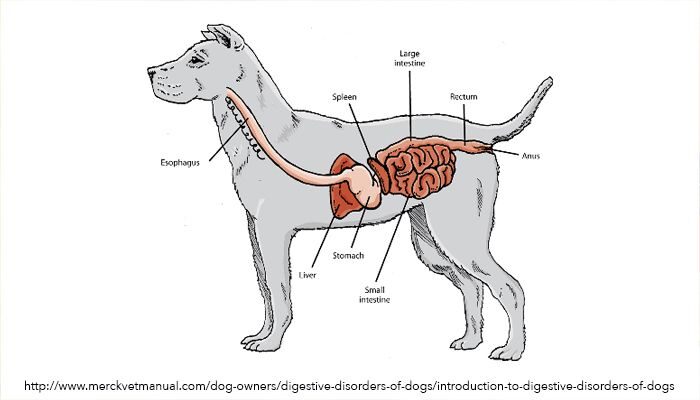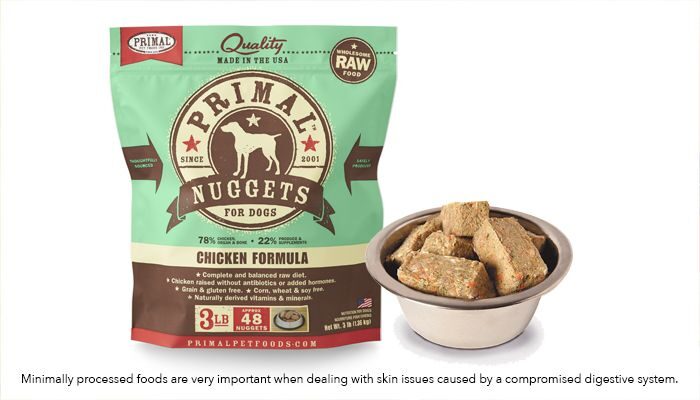
I don’t know about you, but being itchy is one of the worst sensations for me. Several years ago I had a severe allergic reaction to the new laundry detergent I used. I had full body welts and I was scratching myself bloody in my sleep - I wouldn’t wish that kind of torture on my worst enemy…much less a poor dog or kitty.
If you’ve been to any of our four locations for any length of time, then you’ve heard us talk about the importance of your pet’s diet on their overall health. We aren’t shy about pointing out the damage that crappy diets loaded with corn, wheat, soy, dyes, unnamed meat sources, sugar, and other poor ingredients can do when your pet eats it every day.
When a customer comes to us to ask about skin allergies and itching, our first conversation is inevitably about food. We can sell you topicals and sprays that might help the symptoms but it’s really important for us to help you find the root cause and, hopefully, an answer to the itching.
So what causes itchy skin in dogs?
Environmental factors can play a part - some dogs and cats can be allergic to grasses and molds. Believe it or not, we’ve had quite a few of our grooming dogs that had itchy skin rashes that turned out to be as a result of the Febreeze their owners were around the house. Parasites are another cause of itching. For dogs sensitive to fleas, a single bite is enough to send them into full-body itchies and can lead to painful hot spots.
Far and above, however, allergies are most often blamed on the food. However, the truth is that “food allergies” are actually uncommon. Dogs and cats can be more sensitive to things like corn, wheat or soy…or even to protein sources such as chicken or beef…but true food allergies are actually not all that commonplace. Food *does* play a role, though.

Did you know that about 70% of your pet’s immune system is dependent on his gut? Yup, the stomach. Your pet’s stomach lining is like a filter that keeps bacteria and toxins out of the bloodstream. However long-term abuse of the stomach lining causes this filter to break down, allowing bacteria, toxins, and even the food itself into the bloodstream.
These foreign invaders can trigger an immune response and the most common stage of this “leaky gut” is…you guessed it! Allergies and itchy skin! That includes hot spots ear infections and, over time, an overabundance of yeast both inside and out.
Leaky Gut is known as a mimic disease because it is so often mistaken for other problems such as skin allergies, chronic inflammation, Irritable Bowel Syndrome, and more. It’s a hidden problem that manifests in so many different ways it can be difficult to diagnose and unfortunately, some common treatments for allergies can actually make a leaky gut worse, not better.
Causes of leaky gut vary, but it all comes down to the destruction of the good bacteria in your pet’s gut and the breakdown of the stomach lining. A poor diet that is highly processed and filled with starch and sugars starves the good bacteria in your pet’s stomach, which in turn leads to yeast overgrowth. Adding inflammatory GMOs such as corn, wheat, and soybean to the system keeps their gut and body inflamed.
Worms and other stomach parasites can also contribute. It has also been said that over-vaccination and even some flea and tick treatments can be contributing factors in leaky gut syndrome.
If your pet has issues with itchy skin and chronic ear infections and you’ve been at your wit’s end, it might be beneficial for both of you to adjust the way you view the problem and make some small changes in your treatment. Rather than addressing the symptoms (much like putting a bandaid on the problem to cover it up), it wouldn’t hurt to treat the possible root cause and attempt to heal the gut itself.

Start by feeding a good quality diet
In the beginning, you might even try a raw diet. However, if that’s not in the budget or seems like too much work (yes, even the commercial raw diets can be inconvenient) look for something that has LOTS of meat protein (not plant protein!), low starches, low sugar, no dyes and plenty of good, healthy fat. Make at least 25% of your pet’s diet something other than kibble. Whether it’s raw, freeze-dried raw, or canned (good quality only!), you will be adding much needed moisture and meat content to your pet’s diet.
Next, you should look at a few supplements to add to your pet’s meals. A good diet is a step in the right direction, but if your pet has a leaky gut it’s going to require some additional help healing.
Start with a good prebiotic (fermented is best) along with a probiotic. Many high-end foods add pre and probiotics. However, if your pet’s stomach bacteria has been decimated you need more than the minimum to help it out.
Ark Naturals makes a product called Gentle Digest that contains bacillus coagulans and dried chicory root to promote the growth of good bacteria in your pet’s digestive system.
We also receive great feedback from pet parents who use Rogue Origins supplement.
Omega Fatty acids should also be added - fish oil and hemp seed oil are great. Many of our customers use Ultra Oil and have had nothing but good things to say about it. It contains Hempseed Oil, Flaxseed oil, Fish oil (sardine and anchovy), and Grapeseed oil. Grapeseed oil in particular is great because it has antioxidant properties, while hempseed oil is easier to digest than fish oil. It’s also non-GMO and cold-pressed.
The anti-inflammatory properties of these oils help to ease and heal the inflammation of the stomach lining. All of the mentioned supplements are good for both dogs and cats and we carry these at Whole Pet.
